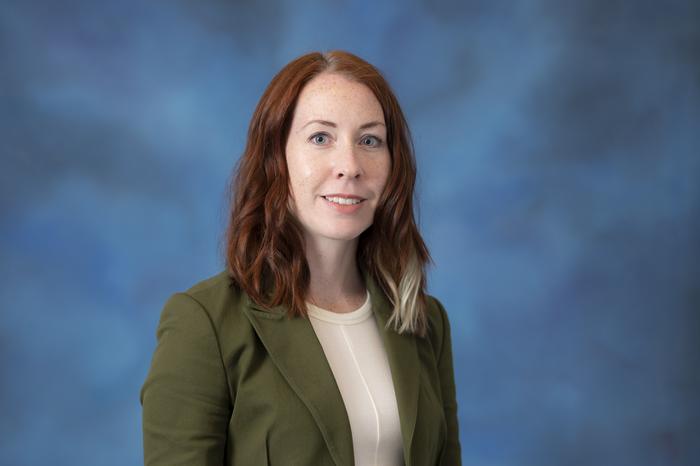Chronic kidney disease is a growing problem worldwide and in the aging U.S. population. But could the groundwork for this progressive disease have been laid while its victims were still in utero?

Credit: University of Pittsburgh
Chronic kidney disease is a growing problem worldwide and in the aging U.S. population. But could the groundwork for this progressive disease have been laid while its victims were still in utero?
Newly launched research at the University of Pittsburgh School of Public Health seeks to determine if pregnant mothers’ environmental exposure to toxic metals impacts kidney development in their babies, setting the stage for a problem that doesn’t become apparent until the baby is an adult.
The National Institutes of Health recently awarded a three-year, $2.2 million “high risk, high reward” grant to Dr. Alison Sanders, an assistant professor in Pitt’s Department of Environmental and Occupational Health, to assemble a transdisciplinary team of scientists who will collect data and explore the hypothesis from multiple angles.
“In the last two decades, there’s been a lot of research connecting a range of conditions, from cardiovascular to behavioral, to toxic metal exposures in utero. But we think of chronic kidney disease as a late-stage adult disease so it hasn’t received the same attention,” Sanders said. “That is starting to change.”
More than 10% of the world’s population – at least 800 million people – are estimated to have chronic kidney disease, and the number is growing, according to the International Society of Nephrology. It happens when the kidneys aren’t properly filtering blood and eventually progresses to kidney failure, requiring dialysis or a transplant.
Diabetes, high blood pressure, heart disease and family history are the main risk factors for developing chronic kidney disease, but some people get chronic kidney disease of unknown origin.
“It’s a kind of kidney disease occurring in younger people, and it is characterized by more rapid decline in kidney function,” Sanders said. “People go from diagnosis to death in 10 years.”
Sanders suspects that there are certain points during fetal development when small exposure to toxic metals and metalloids, such as arsenic, cadmium, lead and mercury, can have profound effects on the growing kidneys by reducing the number of functional filtering units in the resulting organ. Heat stress from a warming world may then be enough to tip these lower-quality kidneys into failure, she explained.
For the NIH project, which is part of the National Institute of Environmental Health Sciences’ Superfund research portfolio, Sanders has knit together a team of epidemiologists, biostatisticians, engineers, toxicologists, risk assessors and nephrologists to investigate global data on the mix of toxic metals measured in the blood and urine of women of childbearing age and pregnant mothers. They’ll then look at the effects of these metal mixtures on kidney development using fish, mice and human-derived organoid models. The team comprises Dr. Neil Hukriede and Dr. Jacqueline Ho, both of Pitt, Dr. Nishad Jayasundara of Duke University and Dr. Chris Gennings of the Icahn School of Medicine at Mount Sinai.
“On their own, each metal may not be at a level high enough to cause concern, but there may be a combination of low levels of many metals that amplify their detrimental effects,” Sanders said.
Different geographical regions are known for the likelihood of finding different combinations of metals in samples from people. For example, coastal areas may have populations with more mercury and cadmium because they become concentrated in seafood, whereas arsenic is more likely to be found in populations that drink from groundwater wells.
By gaining information on whether a certain mix of toxic metals is more detrimental to the kidneys of a developing fetus, and if there are geographical areas where those metals are more likely to be encountered – particularly if those areas are harder hit by climate change – Sanders hopes her team can inform policymakers and help the public be aware of their risks.
“We don’t have a lot of regulatory guidelines for what levels are dangerous when it comes to mixtures of toxic metals during pregnancy; we have guidance for just lead, just mercury, but not combinations,” Sanders said. “If we find that a certain ratio or mixture of metals damages developing kidneys, that could support policies that protect pregnant moms and their babies.”
On June 5 at the Pitt School of Public Health, Sanders and her scientific team will present the Environmental Health Kidney Symposium. Details are available by registering for the event. Additionally, people interested in contributing to the research can contact Sanders at [email protected].
“Our team is looking to broaden our transdisciplinary approach,” Sanders said. “We hope the symposium encourages people with ideas to attend and get in touch.”




